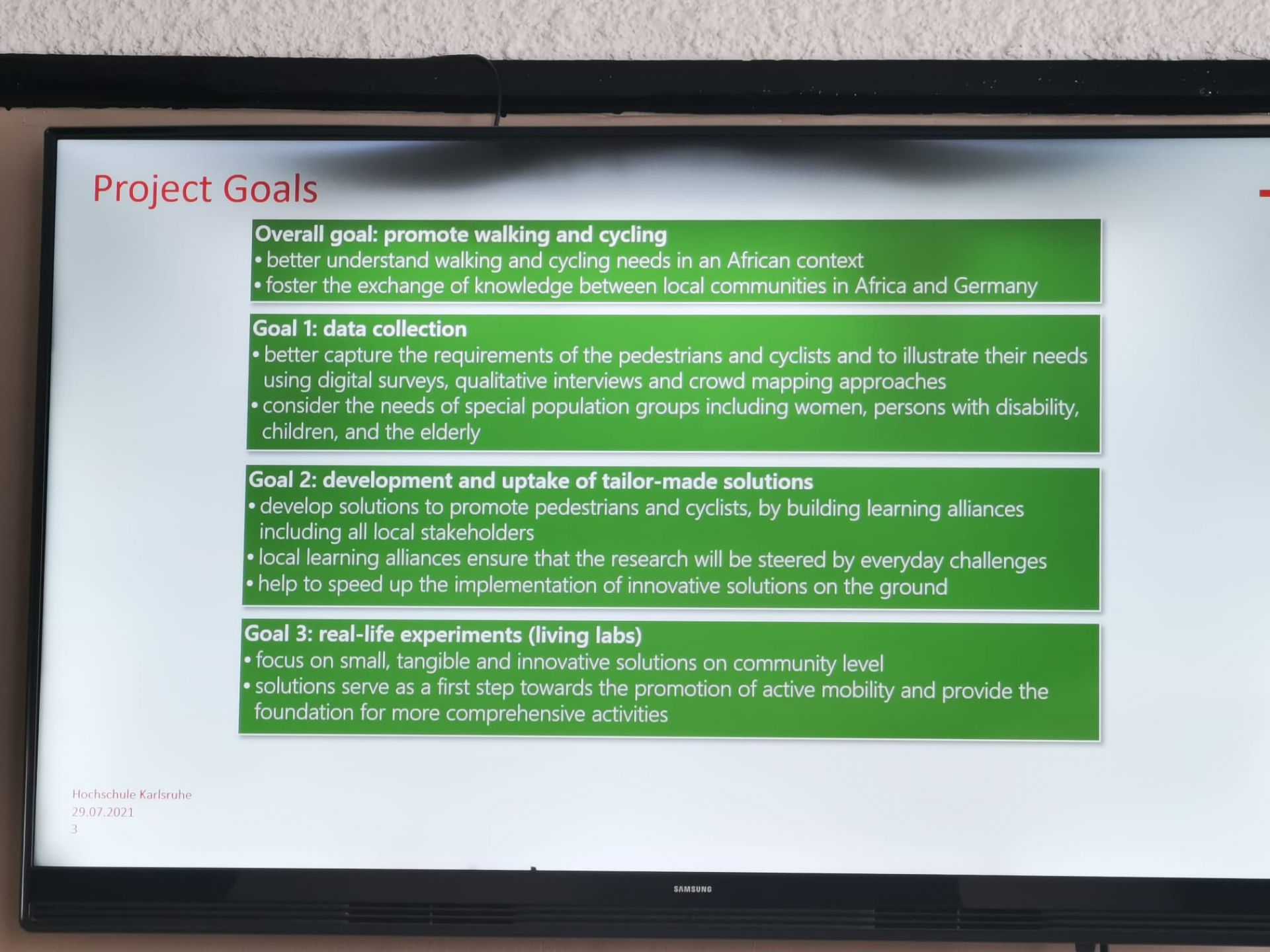Collaboration on Active Mobility Africa (CAMA)
Jahr: 2023

Ziele/Ideen
The project addresses two major challenges: lack of awareness, and inadequate infrastructure. Various universities in sub-Saharan Africa provide education and training in transport planning. Nevertheless, there is still a lack of engineers needed to design, implement, and maintain the infrastructure for pedestrians and cyclists. Many engineers in the field were trained based on 19th century curricula and do not possess the up to date required knowledge and experiences on walking and cycling. As a result, designs are biased to road infrastructure that meets the need of automobile infrastructure with only little attention to walking and cycling. On the other hand, African region has the highest fatality rate due to car accident among all regions. Unfortunately, in most cases, the victims of traffic casualties are pedestrians and cyclists. Much of that is linked to the neglect of the infrastructure needs for pedestrians’ and cyclists’ safety.
Kurzbeschreibung
Walking is the primary mode of travel for 78% of Africans. However, active mobility in most African cities is unsafe and one of the riskiest modes of mobility. Active m
obility have often been forgotten in research and planning in Africa and only in recent years local authorities as well as international agencies are putting more effort on this topic. CAMA is a collaborative project on active mobility between two German and three African Universities. The project has two main components: research and continuous education on walking and cycling in three African cities. There are efforts to develop walking and cycling policies and infrastructure in the case cities. However, these new infrastructure projects are minimal in scope and are in places that do not serve the majority of the people who need to access them. The goal of the project is to foster the exchange of knowledge in the promotion of active mobility. To achieve the objective of the study, a multi-method approach is utilized
Resultate
The project aims to add value to the existing activities to promote active mobility in Africa by focusing on three scientific project goals: 1. Data Collection – to better capture the requirements of the pedestrians and cyclists and to illustrate their needs using digital surveys, qualitative interviews, and innovative crowd mapping approaches. 2. Uptake of tailor-made solutions – this will help to promote active mobility, by building learning alliances, preparing real-life experiments, and testing innovative solutions. The local learning alliances will be developed in Nairobi, Kampala and Mekelle. 3. The real-life experiments will focus on small, tangible, and innovative solutions on community level rather than focusing on big infrastructure and national policy development. These small interventions can serve as a first step towards the promotion of active mobility and provide the foundation for more comprehensive activities.
Partner
UN-Habitat: Knowledge exchange and collaboration
GIZ: Consultation, Knowledge exchange and collaboration
Walk21: Knowledge exchange and collaboration
Mekelle City Administration – Ethiopia: Consultation, Knowledge exchange and collaboration
Mekelle University – Ethiopia: Consultation, Knowledge exchange and collaboration
Uganda Ministry of Works & Transport: Consultation, Knowledge exchange and collaboration
Kampala Capital City Authority – Uganda: Consultation, Knowledge exchange and collaboration
Tigrai Bureau of Road, Construction and transport: Consultation, Knowledge exchange and collaboration
UNEP Kenya: Consultation, Knowledge exchange and collaboration
WOW MOM: local knowledge exchange and collaboration
University of Kassel and Karlsruhe University of Applied Sciences
